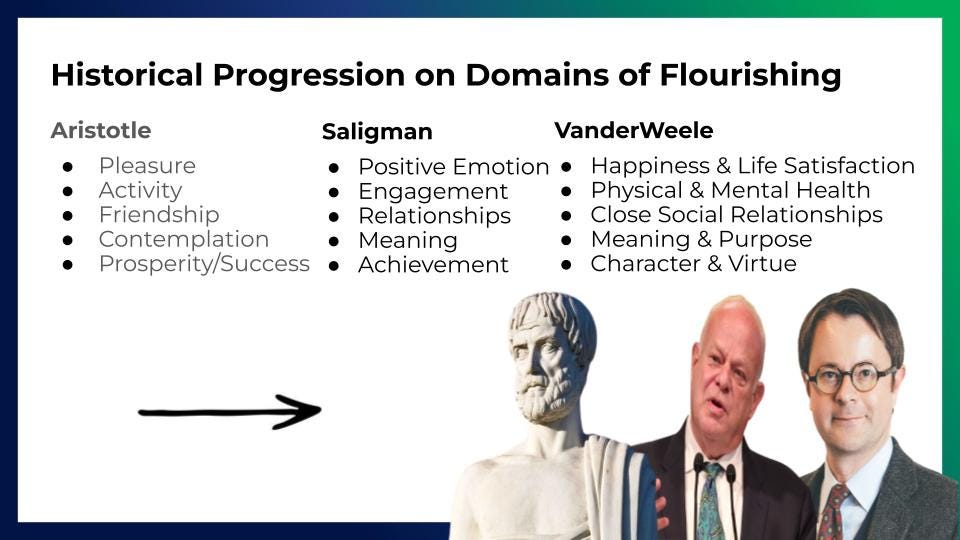How Far We've Come in Classifying the Indicators of Human Flourishing
The journey from Aristotle's ancient philosophy to modern psychological frameworks shows how far we have come.
Aristotle asks, “What is the essence of life? To serve others and to do good.”
This timeless question underscores a journey of thousands of years in understanding what it means to live a good life.
Aristotle wrote about eudaimonia, or flourishing, approximately 2,364 years ago today in his work "Nicomachean Ethics."
Since then, our understanding of human flourishing has evolved, integrating ancient philosophy with modern psychology.
But, how can we assess whether we are living up to our full potential across different domains of our lives?
Ancient Philosophy Meets Modern Psychology
Ancient philosophy and modern psychology converge on some universal indicators.
Aristotle, Martin Seligman, and Tyler VanderWeele, though separated by centuries, share a common perspective on human flourishing.
Each has developed a framework to understand what it means to live a fulfilling life.
You will be surprised at how aligned these perspectives are.
Aristotle’s ‘good life’ are:
Pleasure (Hedonia)
Activity
Friendship
Contemplation
Success (Prosperity)
Martin Seligman consider it as PERMA:
Positive Emotion
Engagement
Relationships
Meaning
Achievement
Tyler VanderWeele proposed five overlapping domains of flourishing:
Happiness and Life Satisfaction
Physical & Mental Health
Close Social Relationships
Meaning and Purpose
Character & Virtue
Towards a Better Understanding
It is telling that despite the passage of over two millennia, there is a basic agreement on life's central domains and the human needs in them.
Both ancient and modern thinkers emphasize the importance of emotional well-being, meaningful engagement, strong relationships, purpose, and achievement.
What about you?
Do you find agreement with these domains?
Do you see any differences?
What domains would you add?
More importantly, what capabilities shape these domains in your context?
The journey from Aristotle's ancient philosophy to modern psychological frameworks shows how far we have come.
Yet, it also highlights the enduring relevance of these core ideas across different times and cultures.





